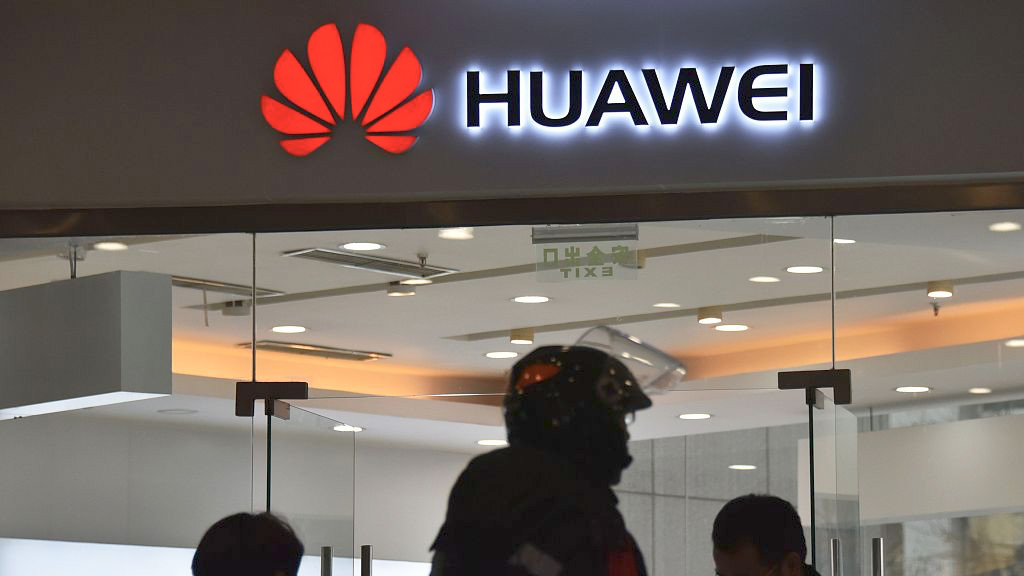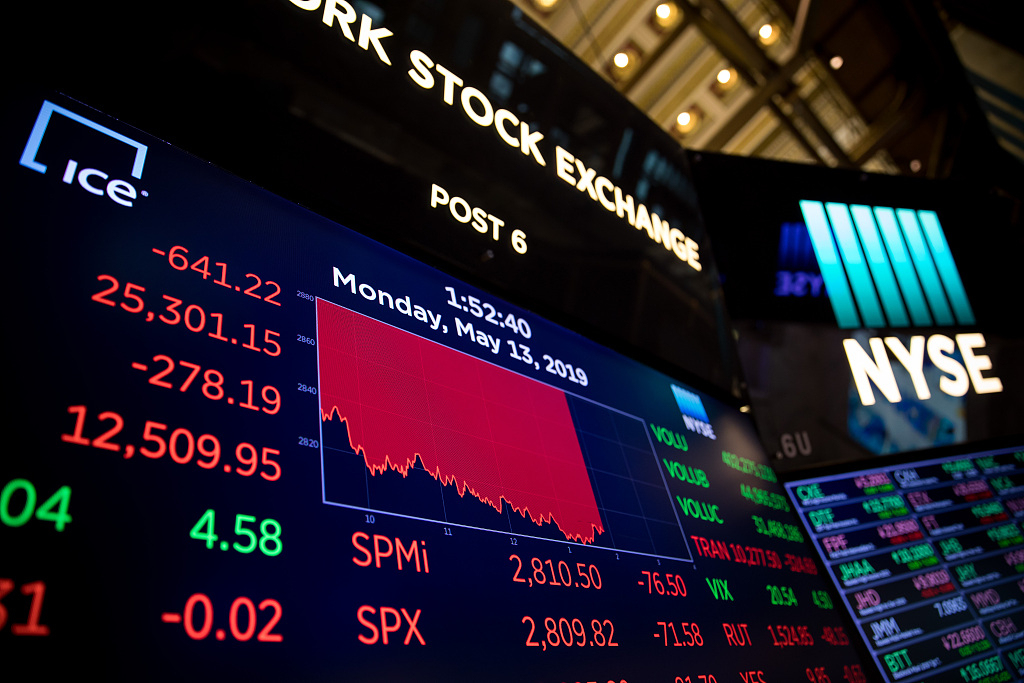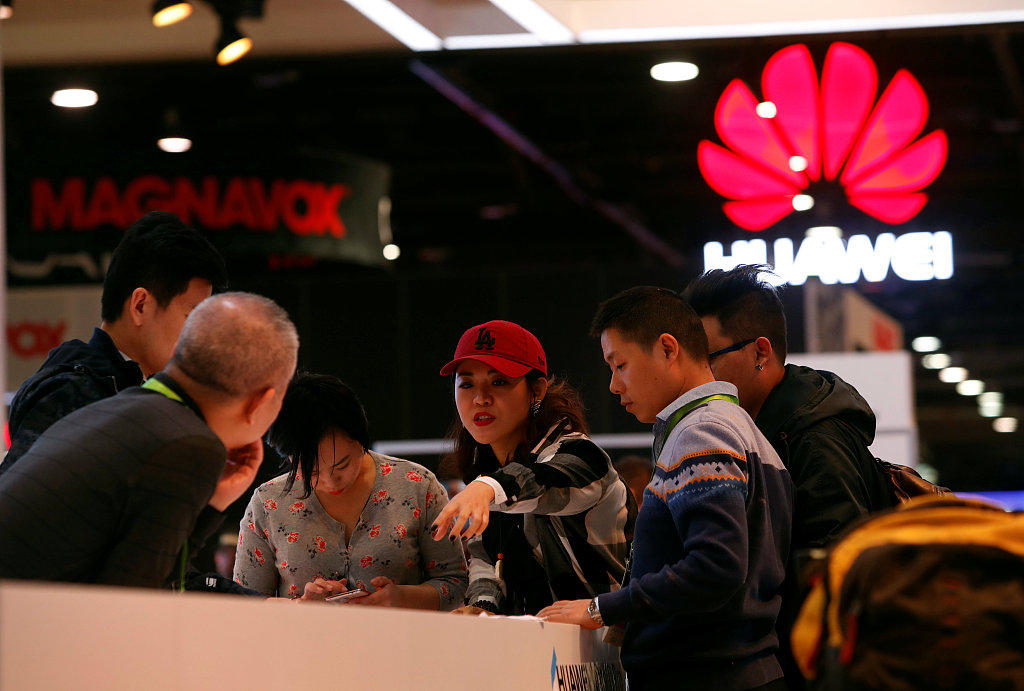
Opinion
10:15, 16-May-2019
Trump is passing the point of no return
Andrew Korybko

Editor's note: Andrew Korybko is a Moscow-based American political analyst. The article reflects the author's opinion, and not necessarily the views of CGTN.
On Wednesday, U.S. President Donald Trump evoked the International Emergency Economic Powers Act, claiming to address the threat faced by the country that is "posed by the unrestricted acquisition or use in the United States of information and communications technology… supplied by persons owned by, controlled by, or subject to the jurisdiction or direction of foreign adversaries."
The executive order does not name any specific company but given the prevailing international economic context and exacerbated trade tensions between China and the U.S. it is widely thought that the Chinese technology giant Huawei is the real target. The move represents the point of no return for several reasons.
Firstly, it would appear that Trump has taken a much more hands-on approach to the trade war, and secondly, he has used his authority to override Congress in the purported interests of national security. These two observations alone make it unlikely that a deal would be reached with China before the 2020 elections, meaning that the American people will probably be adversely affected by the economic consequences of any reciprocal action that China might take to rightfully protect its national interests and those of its own people.

A monitor displays stock market information at the New York Stock Exchange (NYSE) in New York, May 13, 2019. /VCG Photo
A monitor displays stock market information at the New York Stock Exchange (NYSE) in New York, May 13, 2019. /VCG Photo
Furthermore, the arbitrary singling out by one man of certain foreign companies for de-facto sanctions (and the far-reaching economic consequences thereof) raises serious concerns about the state of American democracy, therefore adding credence to the political opposition's claims that Trump is abusing his position and taking the country in a disturbing direction.
Another worrying thought is the Pandora's box of paranoia that he would be opening up by strongly implying that Huawei is nothing but a proxy for the Chinese government.
This same unfounded argument could theoretically be made against any company in the world in relation to their homeland's intelligence services, but it moves from the realm of pure speculation to an objectively confirmed fact when it comes to some American tech companies that have been proven to cooperate closely with U.S. spy agencies. Hypocritically politicizing this issue in the Chinese case would inevitably lead to the U.S. putting more pressure on its foreign partners to quickly follow suit or risk having their security cooperation with it suspended, an unfair ultimatum that would only expose America's hegemonic relationship with others.
Worse still, unveiling an anti-Chinese "national emergency" through the International Emergency Economic Powers Act would add a spy war dimension to the trade war, further complicating China-U.S. relations and bringing back the suspicious atmosphere of the Cold War.
Considering that Huawei is at the center of the U.S.' escalation scheme, it becomes increasingly clear that this is more about a tech war than a trade or spy war since the U.S. wants to do whatever it can to cling on to its declining technological dominance.

A Huawei booth at the 2018 CES in Las Vegas, Nevada, January 8, 2018. /VCG Photo
A Huawei booth at the 2018 CES in Las Vegas, Nevada, January 8, 2018. /VCG Photo
Interestingly enough, the U.S. conspiratorial claims against China might very well just be a projection of its own activities over the decades in abusing the technological infrastructure that its companies built abroad in order to spy on friends and foes alike.
If these countries upgrade to much more affordable and high-quality Chinese systems in preparation of the global 5G rollout, then the U.S. could lose its long-held capability to spy on them. This might explain why the U.S. is obsessed with linking Huawei to the issue of national security.
Now that Trump has formally signed the executive order, the president has passed the point of no return as it may prohibit American companies from cooperating with Huawei.
This escalation would greatly reduce the chances of reaching a trade deal with China, therefore worsening the hardships of the American people ahead of the 2020 elections. Not only would it raise concerns about the state of American democracy, but it would also transform the trade war into a spy war, which in turn would make the tech war between the two countries a central component of revived Cold War hostilities toward China.
(If you want to contribute and have specific expertise, please contact us at opinions@cgtn.com.)

SITEMAP
Copyright © 2018 CGTN. Beijing ICP prepared NO.16065310-3
Copyright © 2018 CGTN. Beijing ICP prepared NO.16065310-3